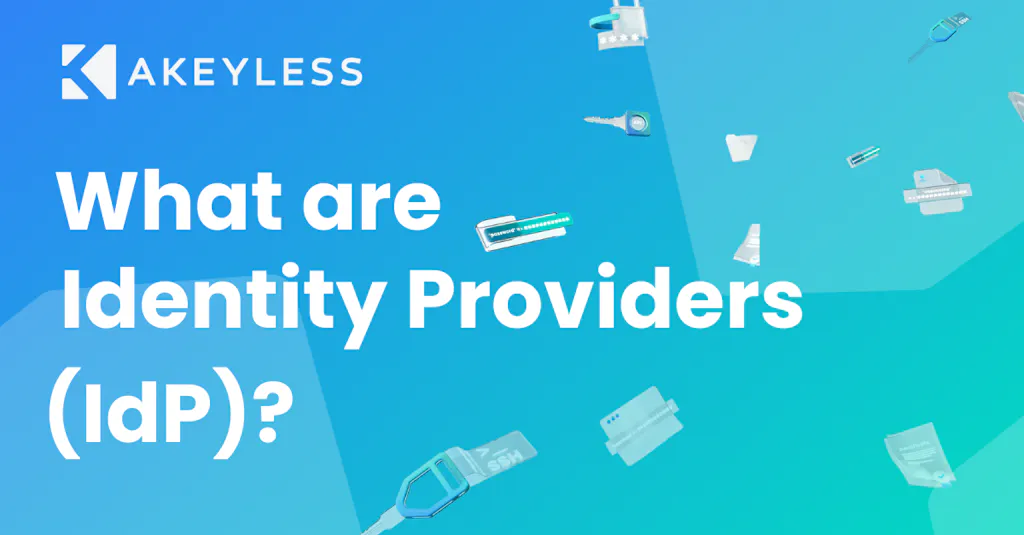
An Identity Provider (IdP) is a digital service that stores and verifies user identity information. It plays a pivotal role in the authentication process by ensuring that individuals or devices are accurately identified before granting access to secure applications and systems. When a user attempts to access a service, the IdP checks their credentials (such as usernames and passwords or biometric data) against its database. If the credentials match, the IdP confirms the user’s identity to the service, allowing access. This system eliminates the need for multiple passwords and usernames for different services, streamlining the login process while bolstering security.
Why are IdPs Important?
For CISOs: IdPs are foundational to creating a secure digital environment. They centralize user authentication, reducing the risk of unauthorized access and enhancing the overall security posture of the organization. This centralized approach also aids in compliance with data protection regulations, as it provides a clear overview of access controls and user activity.
For DevOps Teams: IdPs simplify the integration of authentication mechanisms into applications and cloud services. This simplification accelerates development cycles and ensures that security is a built-in feature of the application architecture, not an afterthought. By leveraging IdPs, DevOps can automate secure access to resources, which significantly boosts efficiency and productivity.
For IT Professionals: IdPs enable the management of user access to networked systems and applications from a single platform. This centralized management facilitates the enforcement of security policies, the monitoring of user activities, and the quick revocation of access when necessary. It significantly improves operational efficiency and ensures that access to sensitive information is securely controlled in line with organizational policies.
The Role of IdPs in Cybersecurity
IdPs play a pivotal role in cybersecurity frameworks by enabling secure access to applications and services. They use standardized protocols such as SAML (Security Assertion Markup Language), OAuth, and OpenID Connect to authenticate users and communicate their identity information securely to service providers or relying parties.
How IdPs Work
Authentication: IdPs authenticate users’ or devices’ identities by verifying their credentials against a database. This process ensures that the entity requesting access is indeed who they claim to be.
- Authorization: While not all IdPs handle authorization, they often communicate roles or attributes as part of the identity assertion, which service providers can use to make authorization decisions.
- Single Sign-On (SSO): Many IdPs offer SSO functionality, allowing users to access multiple applications with one set of login credentials. This not only enhances user experience but also reduces the risk of password fatigue and associated security vulnerabilities.
- Federation: IdPs support identity federation, enabling users to access services across different domains or organizations securely, based on trust relationships established between the IdPs and service providers.
Importance and Benefits of Identity Providers
- Enhanced Security: By centralizing the authentication process, IdPs reduce the attack surface associated with managing multiple access credentials.
- Improved User Experience: Users benefit from SSO and seamless access to multiple applications without repeatedly logging in.
- Operational Efficiency: Organizations can streamline their identity and access management (IAM) processes, reducing the administrative burden associated with user account management.
- Compliance and Auditing: IdPs facilitate compliance with regulatory requirements by providing centralized control and visibility over access management.
Practical Applications
- Enterprise Access Management: Corporations use IdPs to control employee access to internal and cloud-based applications.
- Consumer Services: Online services use IdPs to authenticate customers accessing their platforms, often through social IdPs like Google or Facebook.
- Internet of Things (IoT): IdPs can authenticate and authorize IoT devices, ensuring secure communication within IoT ecosystems.
The Akeyless Platform
Akeyless integrates with a wide variety of IdPs to enhance its secure access and secrets management solutions. By leveraging IdPs, Akeyless enables seamless and secure access to its platform, ensuring that only authenticated users and systems can perform operations or access sensitive information. This integration underscores Akeyless’s commitment to providing a comprehensive security solution that meets the needs of modern digital environments.
Akeyless differentiates itself by offering advanced security features, such as its proprietary Distributed Fragments Cryptography (DFC), ensuring that even in a federated identity environment, the security and integrity of secrets and credentials are maintained at the highest level.
(DFC), ensuring that even in a federated identity environment, the security and integrity of secrets and credentials are maintained at the highest level.
Conclusion
Identity Providers are foundational to modern cybersecurity and access management strategies. Akeyless’s integration with IdPs underscores its commitment to security, operational efficiency, and user experience. By understanding and leveraging IdPs.
Explore Akeyless’s solutions further to enhance your organization’s security posture and streamline access management processes.
Start exploring the benefits of Akeyless by starting free or request a demo to see how it can transform your security and access management strategy.
The post What are Identity Providers (IdP)? appeared first on Akeyless.
*** This is a Security Bloggers Network syndicated blog from Blog | Akeyless authored by AnneMarie Avalon. Read the original post at: https://www.akeyless.io/blog/what-are-identity-providers-idp/
如有侵权请联系:admin#unsafe.sh
